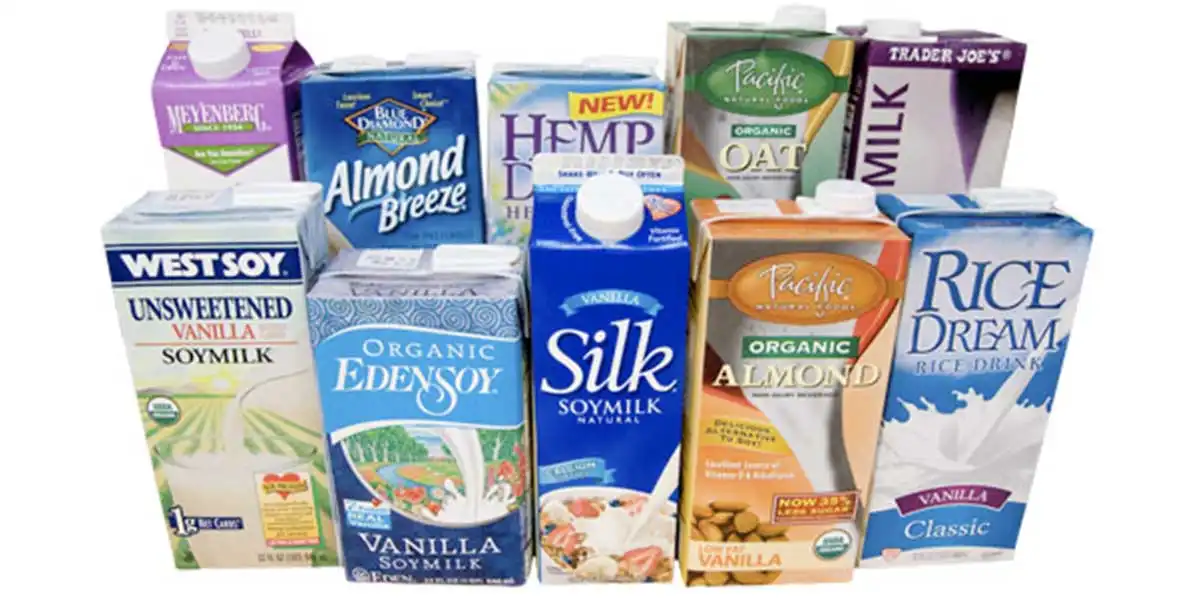More consumers are choosing plant-based options either because of personal preference or because of recommendations from health or nutrition professionals. At the same time, they are becoming more interested in plant-based options for milk that offer great taste combined with the nutrients that can be found in cow’s milk.
According to a survey of the American Dietetic Association in September 2012, 87% of dietitians recommend a plant-based diet to some or most of their patients. Additionally, 70% of those dietitians say that a plant-based diet is nutrient rich, the primary reason for recommending a plant-based diet,
reports BCC Research analyst Shalini S. Dewan.
WHAT IS A MILK ALTERNATIVE?
A milk alternative is a liquid that replaces milk in a diet or recipe. Milk, and other foods in the dairy group, provides a variety of nutrients that are important for the health and maintenance of a healthy body, explains Dewan.
“Some of the most important nutrients in milk include protein, calcium, phosphorus, vitamin D, riboflavin, magnesium and vitamin B12. This unique combination of nutrients makes milk one of the most popular beverages. For a variety of reasons, however, nondairy milk alternatives are becoming increasingly popular.”
Nowadays, there are many “milks” to choose from: soy, almond, rice, hemp and so forth. Some people choose these beverages for the taste, while others choose them because of intolerances or allergies to cow’s milk. Some choose to avoid “real” dairy for ethical reasons and/or culture-al preferences, as well, Dewan notes.
MILK-ALTERNATIVES INDUSTRY
Dewan says milk-alternative products generally can be classified into following types: soy milk, almond milk, rice milk, and others (coconut milk, oat milk, hemp milk, hazelnut milk, etc.)
“Various types of plant milks are available in a growing array of formulations. These include plain sweetened, plain unsweetened, flavored sweetened, flavored unsweetened and others such as low fat or nonfat and fortified varieties,” she says. “Other forms include blends formulated to address specific health concerns such as heart health, digestive health, energy and calcium absorption. Different types of markets have become the important sales channels for nondairy drinks. These include supermarkets, health food stores, pharmacy stores, convenience stores and others.”
In recent years, there has been steady increase in consumption of milk alternatives because of growing number of vegans and health benefits over regular milk. For decades, Asian consumers have been very familiar with soy drinks, which have been used as a lactose-free alternative. The Asia-Pacific region dominated the dairy-alternative beverages market, with most growth occurring in the soy milk segment, according to Dewan. She says alternatives like almond milk are gaining ground, especially in the European and North American markets, because of some recent negative reviews on the effects of soy milk on
the body.
According to the World Wildlife Fund, there are about 270 million cows in the world. The international non-governmental organization says the global demand for dairy is increasing due to population growth, rising incomes, urbanization and westernization of diets in countries such as China and India.
If you’re thinking of “switching it up,” writes
Lorrain Chow, consider milk alternatives that you can can make at home or buy at the market such as soy, almond, rice, coconut, flax and hemp milks.
“Each variety has its pros and cons,” Chow notes, “so choose wisely and based on what works for your own body. For instance, the perennial favorite, almond milk, contains chock loads of vitamin E—about 50 percent of the daily value in one cup, and about one-third of the calories of 2 percent cow’s milk. However, almond milk has far less protein than dairy milk or soy milk. It also doesn’t have the vitamins, minerals and fatty acids found in dairy milk, so it’s important to look for fortified almond milk.”
Dewan also reports that many people are now going vegan and dairy-free or reducing their consumption of dairy because of food allergies, in an effort to reduce fat and cholesterol intake or just to take advantage of the many health benefits of soy or other milk alternatives. She says that the food and beverage industry is responding to consumers.
“The food companies are launching various products, offering milk varieties produced from soy beans, rice, coconut, hazelnuts and even hemp,” she says. “They’re driving innovation and bringing newer products to serve the consumers in a better and more holistic manner. As the competition is against a strong traditional market of cow’s milk, the manufacturers are banking on specific needs of the consumer that are not being met.”
MARKET REVENUE AND FORECAST
Dewan anticipates the global market for milk alternatives to reach about $5.8 billion and $10.9 billion in 2014 and 2019, respectively, with a five-year compound annual growth rate (CAGR) of 13.3%.
Soy milk, which dominates the market by volume, is expected to grow at a five-year CAGR of 12.5% to reach $8 by 2019, Dewan projects. The next-most popular drink, in terms of market share, is almond milk. Moving at a robust CAGR of 15.8%, the sale of almond milk grew from $673.7 million in 2012 to $886.8 million by end of 2014. Rice milk, which holds the next-largest market share, should grow at a five-year CAGR of 14.4% and increase to $571.9 million in 2019, according to Dewan.




